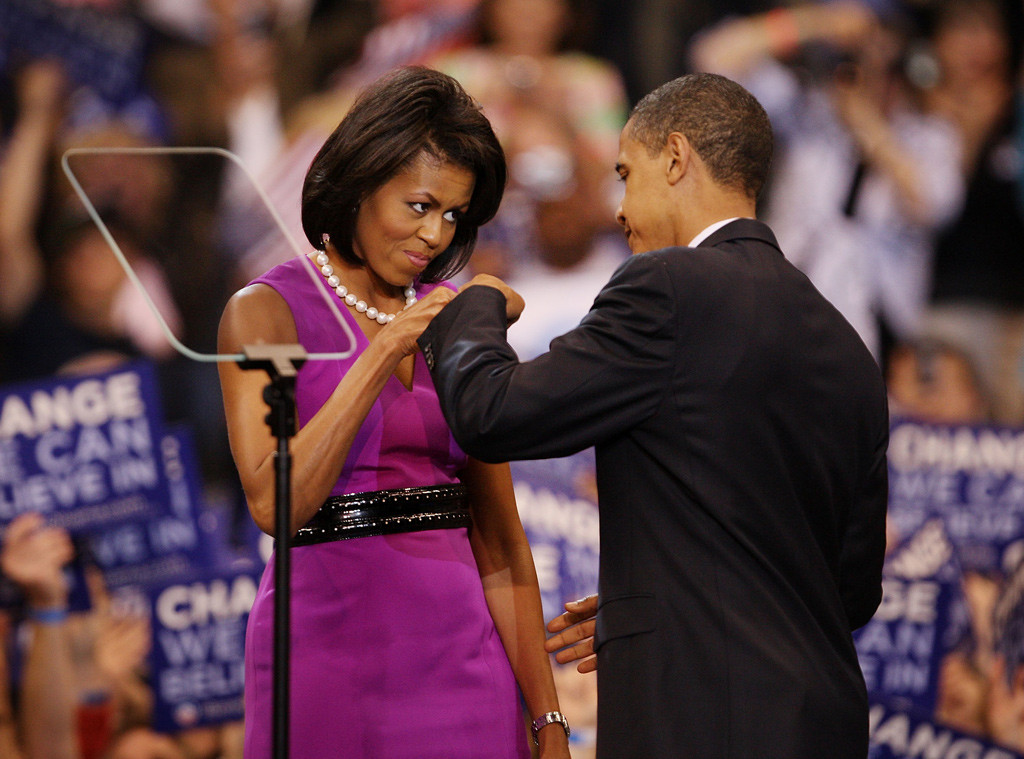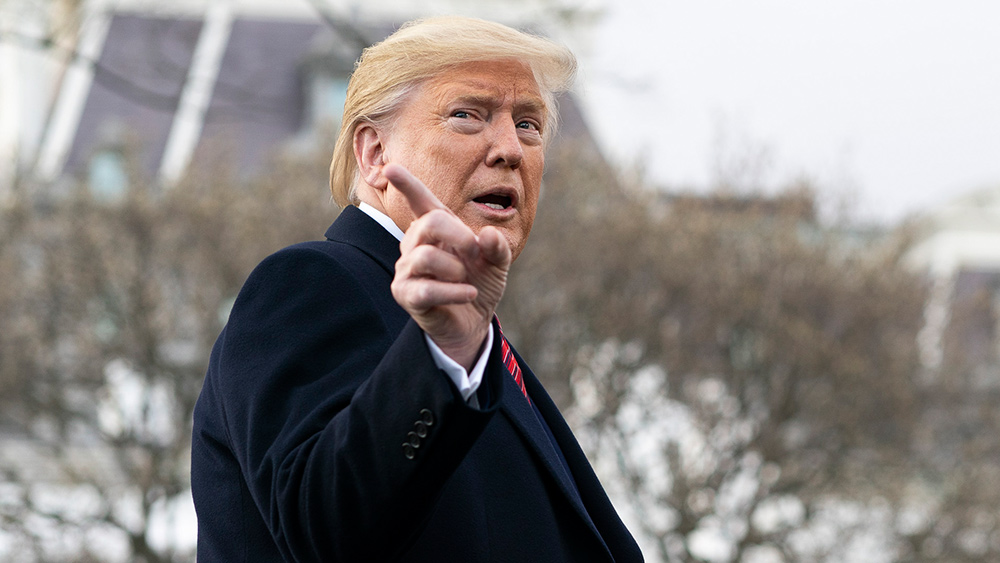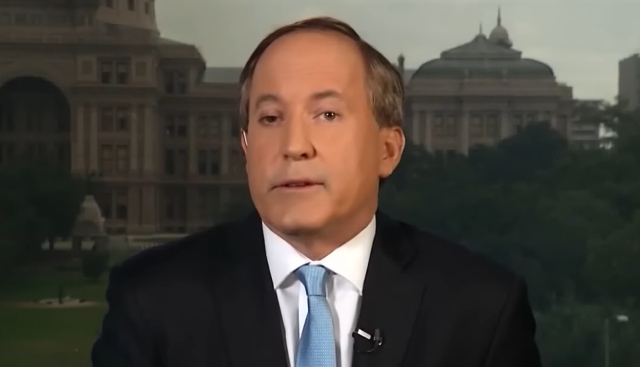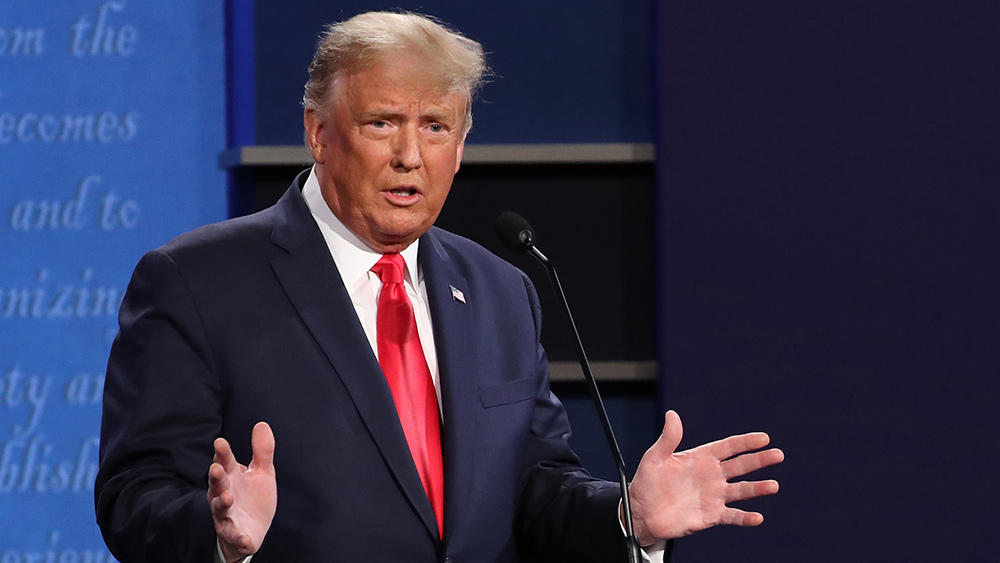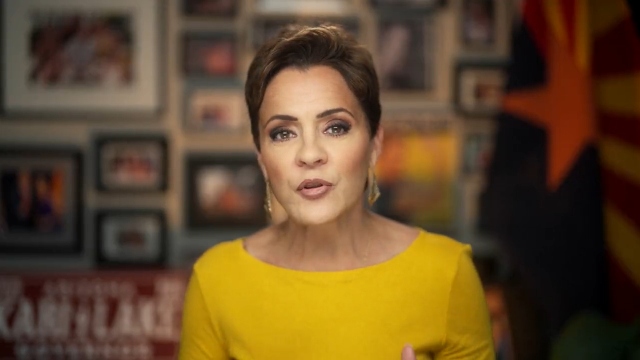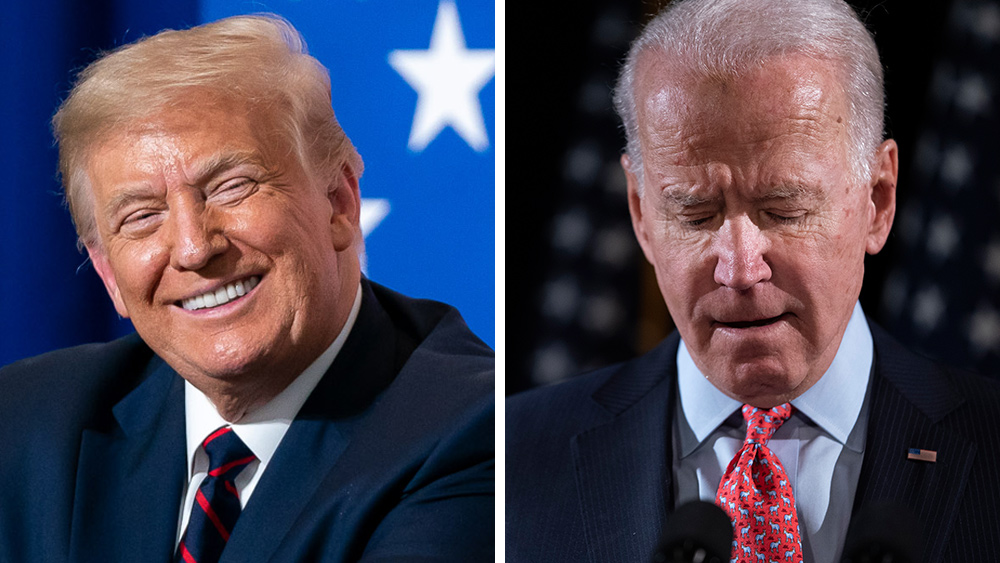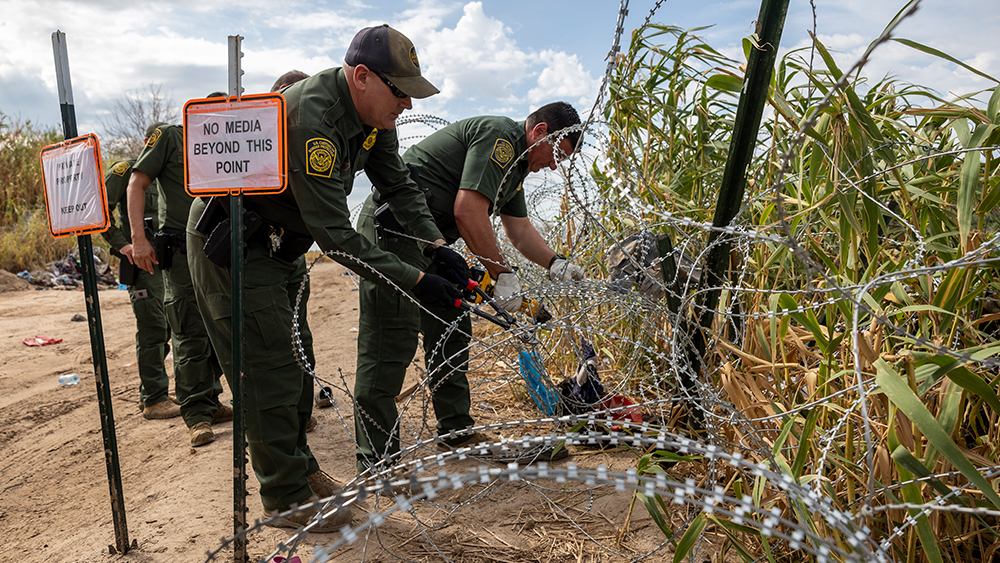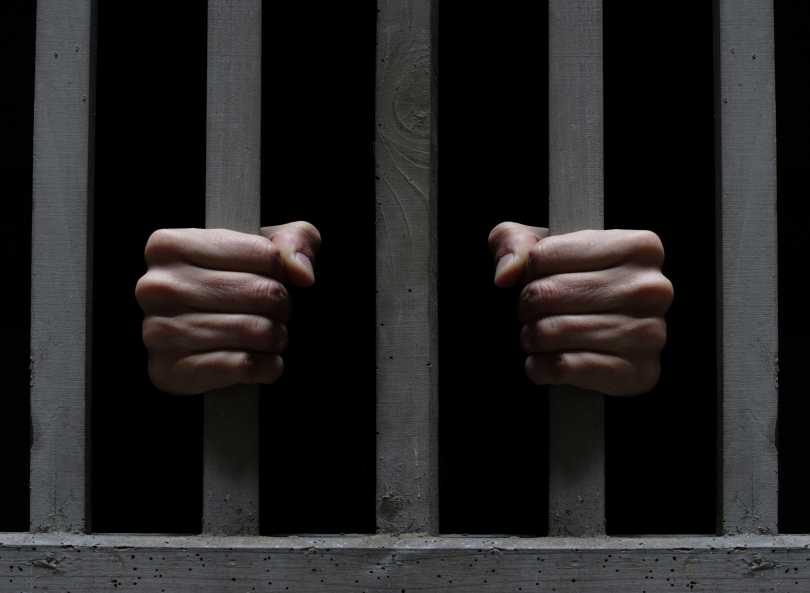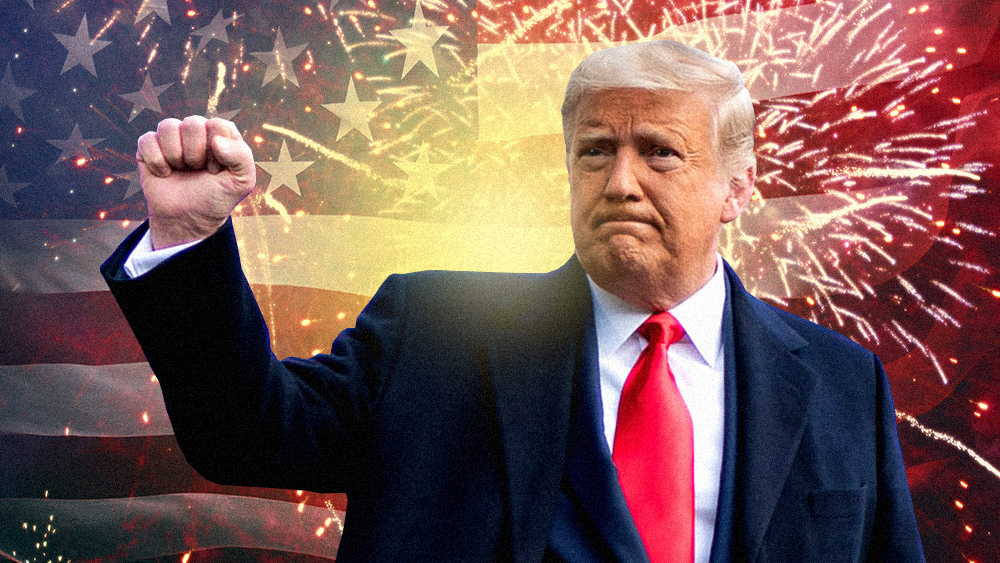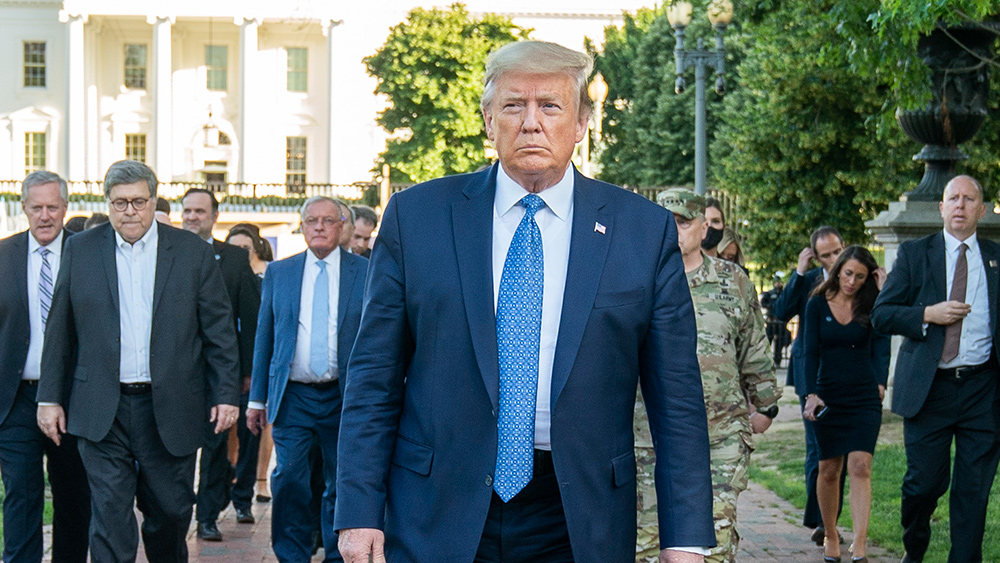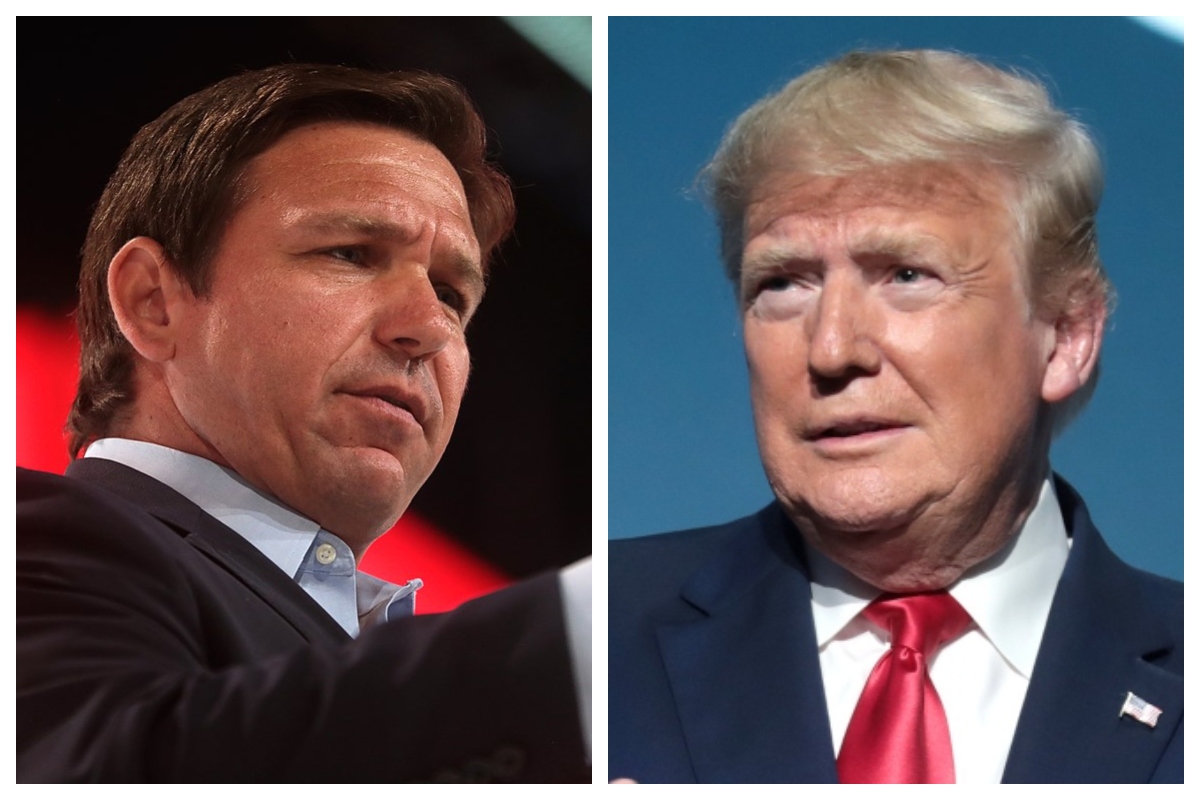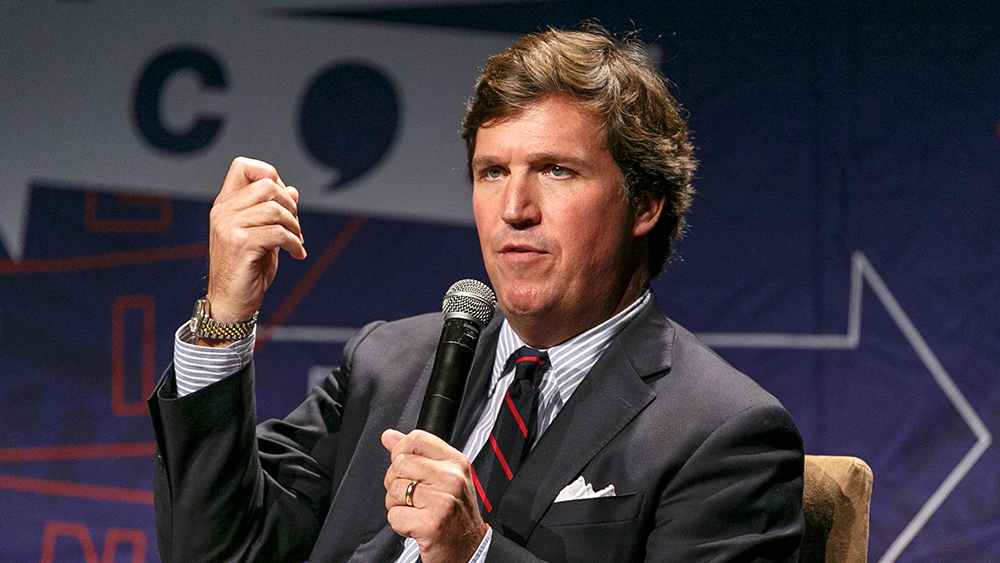Trump vows to prevent the Federal Reserve from creating an American CBDC
01/21/2024 / By Arsenio Toledo

Former President Donald Trump has announced that, if he were to win the upcoming presidential election, he would do everything in his power to prevent the Federal Reserve from creating a central bank digital currency (CBDC) for the United States.
Trump made this announcement during a speech at a campaign stop in Portsmouth, New Hampshire, as his 2024 presidential campaign prepares for the state’s first-in-the-nation primaries for the Democratic and Republican parties on Tuesday, Jan. 23. (Related: BIG BROTHER ALERT: CBDC projects around the world not installing privacy safeguards, British privacy organization finds.)
“Tonight, I am also making another promise to protect Americans from government tyranny,” said Trump in his speech on Wednesday, Jan. 17. “As your president, I will never allow the creation of a central bank digital currency.”
In his warning over America’s possible adoption of a Fed-controlled digital dollar, Trump warns that such a move would give the federal government far too much control over the finances of the American people.
“Such a currency would give a federal government – our federal government – the absolute control over your money,” said Trump. “They could take your money. You wouldn’t even know it was gone. This would be a dangerous threat to freedom, and I will stop it from coming to America.”
Federal government still researching CBDCs
Currently, the Fed is still researching whether to make a fully digital version of the U.S. dollar. In moderating his position on CBDCs, Fed Chair Jerome Powell said the central bank would only move forward with any plan to create a digital dollar if it receives the approval of Congress and the White House.
In an executive order signed in September 2022, President Joe Biden has called for additional discussion and research into a CBDC system, with this research to be led by an interagency working group made up of the Fed and the Department of the Treasury.
In a 2021 paper on how a CBDC would be designed and implemented, Fed officials previously stated that they envisioned a digital currency that would be held in digital wallets run by private banks and other regulated financial firms, rather than allowing ordinary Americans to have deposits directly at the central bank.
This previous proposal suggested that private banks would retain responsibility for safeguarding transaction information, with the same sort of requirements to report suspicious payments under current federal anti-money laundering rules.
In its paper, the Fed claimed that protecting consumer privacy would be the most critical element of an American CBDC. However, it then moderated its position on prioritizing consumer privacy by claiming that the U.S. “would need to strike an appropriate balance … between safeguarding the privacy rights of consumers and affording the transparency necessary to deter criminal activity.”
The Fed is also considering only implementing a wholesale CBDC. In this scenario, the digital dollar would only be granted to certain private financial institutions for use in certain instances, such as in financial transactions with non-U.S. banks to reduce the costs of transactions across borders.
Watch this Jan. 18 episode of “X22 Report” as host Dave discusses Trump’s pledge to never allow the U.S. to adopt a CBDC.
This video is from the Sanivan channel on Brighteon.com.
More related stories:
Trump warns of ECONOMIC COLLAPSE worse than the 1929 Great Depression if he loses 2024 election.
GLOBAL ENSLAVEMENT: G20 heralds launch of government-controlled CBDCs and digital IDs worldwide.
Reuben Yap: CBDCs let central banks CONTROL how people spend their money.
Sources include:
Submit a correction >>
Tagged Under:
big government, CBDC, Central Bank Digital Currency, digital currency, digital dollar, Donald Trump, elections, Federal Reserve, finance, finance riot, money, risk, Trump
This article may contain statements that reflect the opinion of the author
RECENT NEWS & ARTICLES
Trump.News is a fact-based public education website published by Trump News Features, LLC.
All content copyright © 2018 by Trump News Features, LLC.
Contact Us with Tips or Corrections
All trademarks, registered trademarks and servicemarks mentioned on this site are the property of their respective owners.

